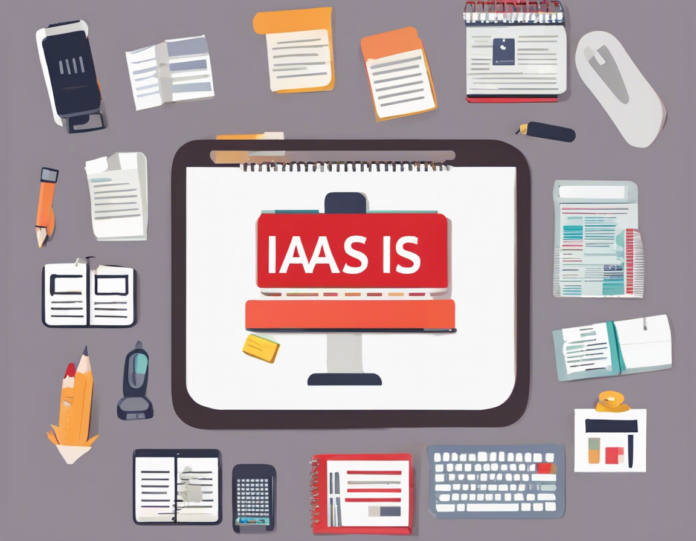Introduction
IAS, or the Indian Administrative Service, is one of India’s most prestigious and sought-after civil services. Established in 1946, it is considered the premier administrative civil service of the Government of India. Aspirants from various backgrounds and disciplines strive to crack the highly competitive Civil Services Examination conducted by the Union Public Service Commission (UPSC) to join the ranks of the IAS officers. In this in-depth article, we will explore the significance, eligibility, recruitment process, and career prospects associated with the Indian Administrative Service.
What is IAS and What Does it Stand For?
The abbreviation IAS stands for the Indian Administrative Service. It is the top administrative civil service of the Government of India and forms a crucial part of the executive branch. IAS officers hold key positions in the Union government, state governments, and public-sector undertakings. They play a pivotal role in policy formulation, implementation, and administration at various levels of governance.
History of IAS
The Imperial Civil Service, which later became the Indian Administrative Service, was founded in 1858 under British rule. After India gained independence in 1947, the IAS was restructured to serve the newly formed Indian government. Over the years, the service has evolved to meet the changing governance needs of the country.
Role and Responsibilities of IAS Officers
IAS officers are entrusted with a wide range of responsibilities, including:
- Policy Formulation: IAS officers are involved in formulating policies at the central and state government levels.
- Administration: They oversee the day-to-day administration and functioning of government departments.
- Developmental Work: IAS officers play a crucial role in implementing various development schemes and programs.
- Public Relations: They act as a bridge between the government and the public, addressing grievances and ensuring public welfare.
- Crisis Management: IAS officers are often called upon to handle crisis situations and emergency responses.
How to Become an IAS Officer
Becoming an IAS officer is a rigorous process that involves clearing the Civil Services Examination conducted by the UPSC. The exam is divided into three stages:
- Preliminary Examination: This is an objective-type exam testing the candidate’s general awareness and aptitude skills.
- Main Examination: This stage consists of written exams covering a wide range of subjects, including essay writing and optional subjects.
- Personality Test (Interview): Shortlisted candidates are invited for a personal interview to assess their suitability for the civil services.
Eligibility Criteria for IAS Exam
To be eligible for the IAS exam, a candidate must:
- Be a citizen of India.
- Have a bachelor’s degree from a recognized university.
- Be between 21 and 32 years of age.
Career Prospects and Growth
Upon clearing the IAS exam and training, officers are appointed to various administrative positions at the district, state, and central levels. The career progression of an IAS officer is as follows:
- Sub-Divisional Magistrate (SDM): Entry-level position at the district level.
- District Magistrate/District Collector: In charge of a district’s administration.
- Commissioner/Joint Secretary: Mid-career level position responsible for policy implementation.
- Secretary/Additional Secretary: Senior administrative position at the state or central government level.
- Chief Secretary/Cabinet Secretary: Top-level administrative positions in the state or central government.
Frequently Asked Questions (FAQs)
- What is the difference between IAS and IPS?
-
The IAS (Indian Administrative Service) primarily deals with administrative functions, policy formulation, and public welfare. In contrast, the IPS (Indian Police Service) is responsible for law enforcement, maintenance of public order, and ensuring internal security.
-
Do IAS officers have the power to make and implement policy decisions?
-
Yes, IAS officers are involved in the formulation and implementation of policies at various levels of government.
-
Can foreign nationals apply for the IAS exam?
-
No, only Indian citizens are eligible to apply for the IAS exam.
-
Is coaching necessary to crack the IAS exam?
-
While coaching can be helpful, it is not mandatory. Many candidates have cleared the exam through self-study and dedication.
-
What is the salary structure of an IAS officer?
- The salary of an IAS officer is determined by the Pay Commission recommendations. It includes basic pay, allowances, and perks as per government norms.
Conclusion
In conclusion, the Indian Administrative Service offers a challenging and rewarding career for individuals passionate about public service and governance. With its diverse roles, responsibilities, and opportunities for professional growth, the IAS continues to attract talented individuals aspiring to make a positive impact on society. If you aspire to serve the nation and contribute to its development, pursuing a career in the IAS may be the right path for you.







